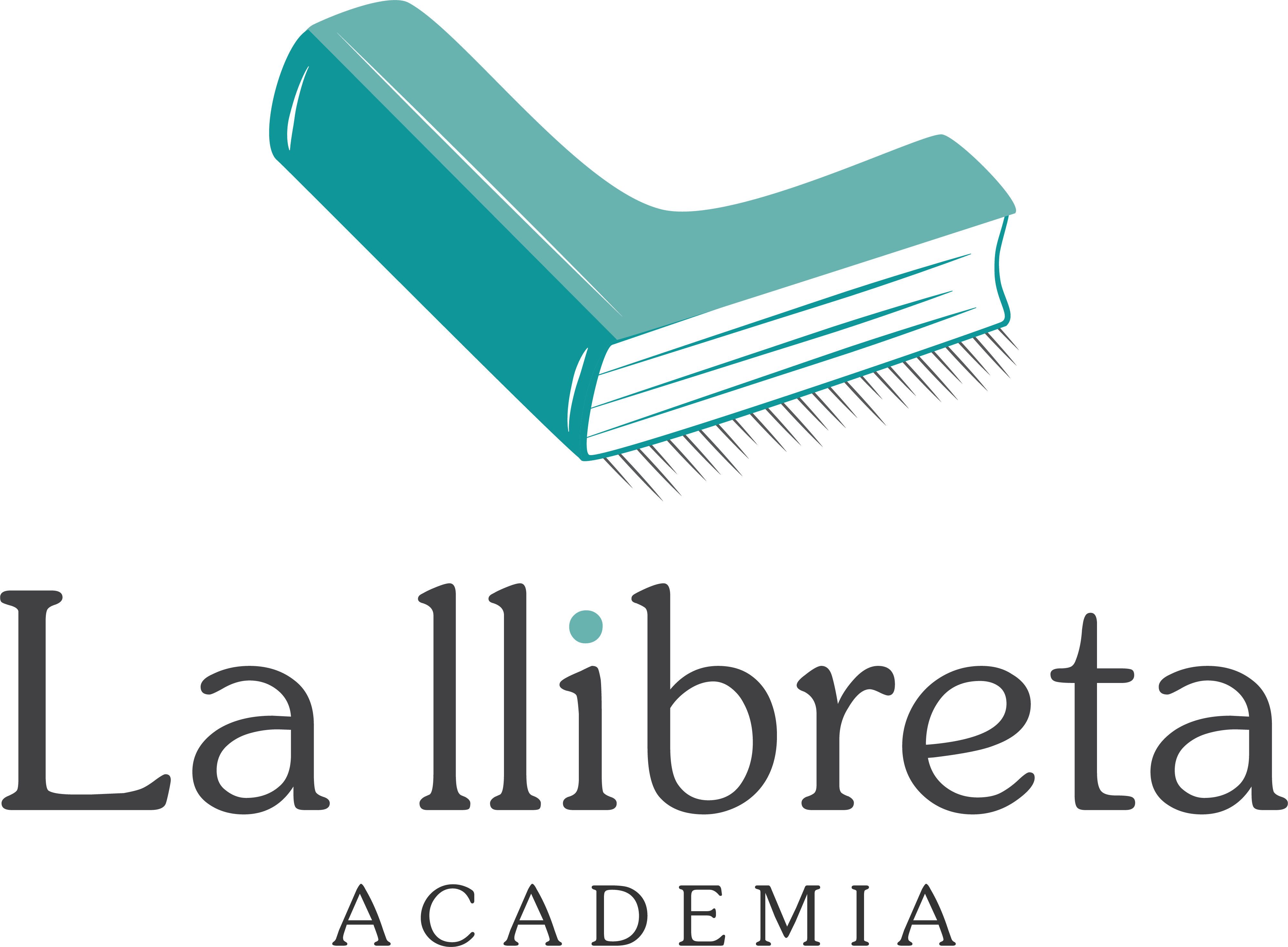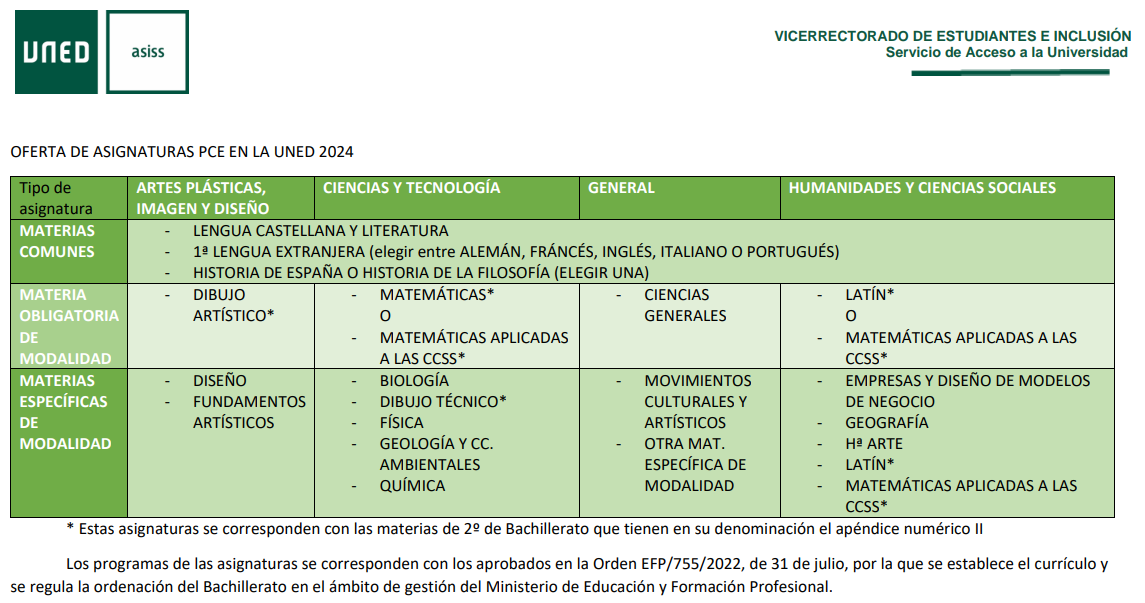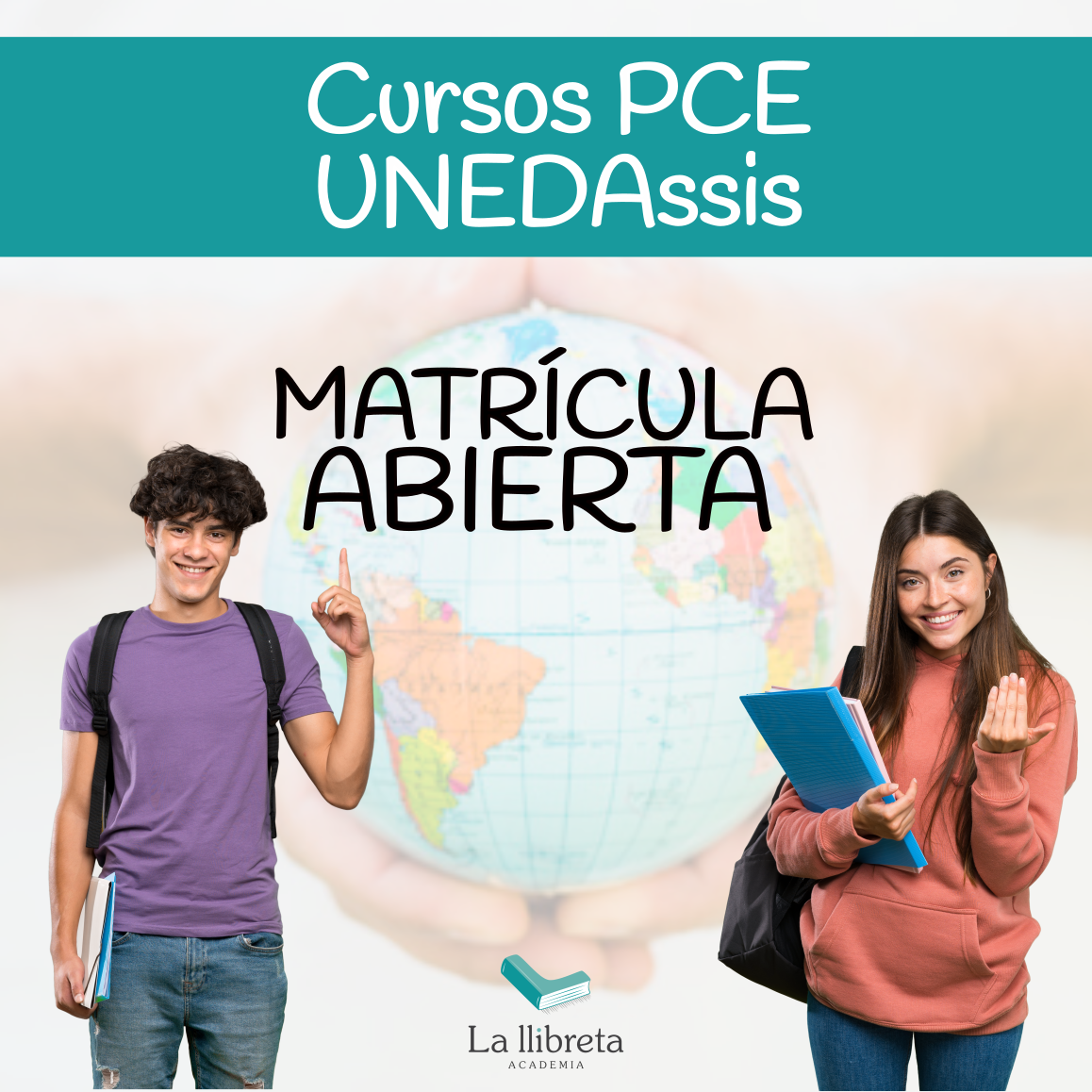What are the PCE exams like, depending on the University and the city where I will study?
If you are a foreigner, and you want to access a Spanish University, the first thing you should know is that the exams you have to take are called PCE (Specific Competency Exams). The second most important consideration is that the subjects you have to take for these exams are defined by 3 variables:
- According to the province in Spain where you want to study.
- According to the degree you want to study
- According to your educational background. If you are a citizen of the EU, have completed the International Baccalaureate (IB), or have an educational alliance.
Let’s show you how it works:
PCE VOLUNTARIA
PCE VOLUNTARIA means that you are not required to participate if your high school grade (out of 10) allows you to enter the university of your choice. If you wish or need to improve your score (up to 14), you can voluntarily take exams in several specific subjects, and among them, the best two grades obtained will be weighted.
Who is it for?
You will be able to take the PCE VOLUNTARIA exams if you are going to study a university degree in Galicia or if you come from a European Union Baccalaureate, an International Baccalaureate or come from a country which has an agreement with UNED.
PCE EBAU STRUCTURE
You must take 4 subjects:
- 1 core subject: to be chosen between History of Spain, Spanish Language and Literature, and a foreign language (English or French). If you are already familiar with the English language, we advise you to take this subject.
- 1 core subject according to the Spanish Baccalaureate: to be chosen between Mathematics, Mathematics Applied to Social Sciences, Latin or Fundamentals of Art.
- 2 Optional subjects: The two with the highest weighting according to the degree you want to study.
Who is it for?
You will have to take the PCE EBAU STRUCTURE if you want to study in:
- Community of Madrid
- Autonomous community Castile and Leon
PCE FREE STRUCTURE
In order to obtain the highest score, you will freely choose 4 subjects. This means that there aren’t any compulsory subjects, neither core ones nor related to the Spanish baccalaureate. The only thing you have to take into account is which subjects score the highest for the University degree you want to study. Generally speaking, we recommend that at least 3 of the 4 subjects should be weighted 0.2.
You can find more information in this post.
Who is it for?
You will have to take the PCE FREE STRUCTURE if you want to study in:
- Valencian Community
- Region of Murcia
- Extramadura Community
PCE EBAU
There are usually 6 subjects to be weighted at the university and you need to, al least, take 4 subjects:
- 3 core subjects: History of Spain, Spanish Language and Literature, and a foreign language (English or French).
- 1 core subject according to the Spanish Baccalaureate: to be chosen between Mathematics, Mathematics Applied to Social Sciences, Latin or Fundamentals of Art.
- Additionally, and to reach the 14 points required by the university, you will have to take 2 optional subjects that will help you to weigh and raise your final exam score. As in the rest of the cases, we will choose the 2 optional subjects that have the highest weight.
Who is it for?
You will have to take the PCE EBAU STRUCTURE if you want to study in:
- Andalusia
- Aragon
- Asturias
- Canary Islands
- Cantabria
- Castilla-La Mancha
- Catalonia
- Balearic Island
- La Rioja
- Navarre
- The Basque Country
List of PCE subjects by field of knowledge:
What are the weights?
The weightings are determined by the university you are applying to. To find out which subjects are best weighted for you, you need to contact the university and inquire about the subjects that have the most weight for your specific case, as well as the cut-off grade for the desired course. This will allow you to determine the minimum score you need to achieve in order to gain admission. You can also refer to the previous year’s list of weightings to guide your subject choices. In this post, you will find the weighting tables of all Spanish public universities, which we update annually. This will help you gain orientation and understand the minimum grade you need to attain for admission. In another post, we explain the weighting system with an example for the Valencian Community.
Educational alliance
As shown in the above chart, everyone who has studied the baccalaureate in a country that has an educational alliance with UNED, can validate their score (which will be up to 10) and can raise it up to 14 (the highest score of the Spanish university) by taking two optional exams according to those subjects that have more weight for the degree they want to study. Those who come from a country that does not have an Educational alliance will have to take the PCE exams (between 4 and 6 subjects).
In this post, you can find out whether your country has an Educational alliance with UNED.
You may also be interested
Understand and make the most of the weighting tables of Spanish universities. Course 2023-2024
This article provides a detailed guide on the weighting tables of Spanish universities to help you maximize your admission score. It explains concepts like admission score, cutoff score, and how they relate to weighting tables. Additionally, it provides direct and up-to-date links to the weighting tables for the 2023-2024 school year, organized by autonomous communities. Understanding how these tables work will help you efficiently choose the subjects for the entrance exams and maximize your admission score.
UNEDASISS PCE Grade Calculator: Calculate Your Admission Score and Cutoff Score
UNEDASISS PCE Grade Calculator Your guide to knowing what score you need to achieve in your university entrance exams to access the degree program you want.University Entrance Exam (PAU)Specific Competency Exams (PCE)PAU +25PAGSHey! Are you ready to embark on your...
Essential Guide to Studying a Degree in Spain: Key Tips and Considerations
Guide to Studying in Spain: Discover How to Choose Your Degree, Prepare for University, and Manage the Duration and Costs of Your Studies.
Obtain Your Student Visa for Spain: A Comprehensive Guide
Empower Your Academic Future: Secure Your Student Visa for Spain with the Expert Guide from Academia La Llibreta
University Admission Guide in Spain for Students from the British Educational System: Post-Brexit
We simplify the path for students from the British educational system towards Spanish universities in the new post-Brexit era.
Administrative formalities REQUIRED to study in Spain
Administrative formalities REQUIRED to study in SpainAre you considering studying at a university in Spain as a foreign student? Great! Before you start, it's important to know that there are some administrative procedures you need to complete in order to access the...
ONLINE PCE course
Study at your own pace with our self-study online courses
PCE ANNUAL COURSE
Classes from October to May.
B1 Spanish level required
Face to face and/or online
PCE intensive course
Classes from January to May.
B1 Spanish level required
Face to face and/or online
SPANISH + PCE
Classes from August to May.
For students who do not have a good level of Spanish
Face to face and/or online









Hello!
I’m trying to choose subjects for the PCE, could you tell me if I understand the weighing system correctly, if that’s alright? I want to enroll in the University of Salamanca next year, to study Psychology (bachelor degree). For that I want to take the English exam (troncal), Mathematics CCSS (troncal de modalidad), History of Philosophy, and Biology. The weightings are: 0,2 for Mathematics, 0,2 for Biology, and 0,1 for Philosophy. Do I understand correctly that in the second stage of the weighing (from 10 to 14) only Mathematics and Biology will be considered, as two subjects with the highest weights? Even if I get better results for Philosophy than for Maths, for example? And it does not matter that Mathematics is one of my core subjects, is that right?
I’m not sure if you can help me here, but I would be enormously grateful if you could! In any case, thank you for your time.
Hi! To calculate your final score for the University of Salamanca, they will consider Philosophy and Biology because those are the specific subjects you have chosen. Since Mathematics CCSS is part of your base score out of 10, it may be more advantageous to choose Mathematics II or further focus on Biology to maximize your weighted score. Good luck, and best regards!
Thank you for your answer! Just to be clear: so, for example, I can take English, Biology, Mathematics CCSS and Mathematics 2 (instead of Philosophy)? I thought that I could choose only one type of Mathematics, since they probably overlap in some topics.
Hi,
I want to study an undergraduate degree in digital art in Spain, and I am considered an international student.
I was wondering if I should take the PCE exam?
Thank you
Hi Diana, it depends on where you studied and in which city you would like to study your Degree. Feel free to reach out to us at secretaria@academialallibreta.es and tell us your specific case so we can help you giving the information you need.
Hello I have given my pce examination and have performed well my subjects were biology , chemistry, general science and English I’m aiming for the course of medicine . I have taken general science as my core subject and it is added newly to the system will I be awarded marks by 0.2 like other core subjects like maths 1 or maths 2 . I’m aiming for the universities of Valencia and madrid
Hello, the subject General Science doesn’t weight 0,2 for Medicine. The subjects that weight 0,2 for Medicine in Valencia and Madrid will be Biology and Chemistry. Good luck! 🙂
Hello there! I am planning to apply to the University of Valencia to study Business Management starting September 2025. I was wondering when the deadline is to apply for the PCE and apply for the university as well. It doesn’t say anywhere in UNEDasiss or the uni website.
Hi, Celia! The registration dates for the exams haven’t been set yet. Normally, the registration period for the PCE is between February and April. As for universities, their application windows are typically open from late June to early July, but those dates haven’t been confirmed either. Regards,